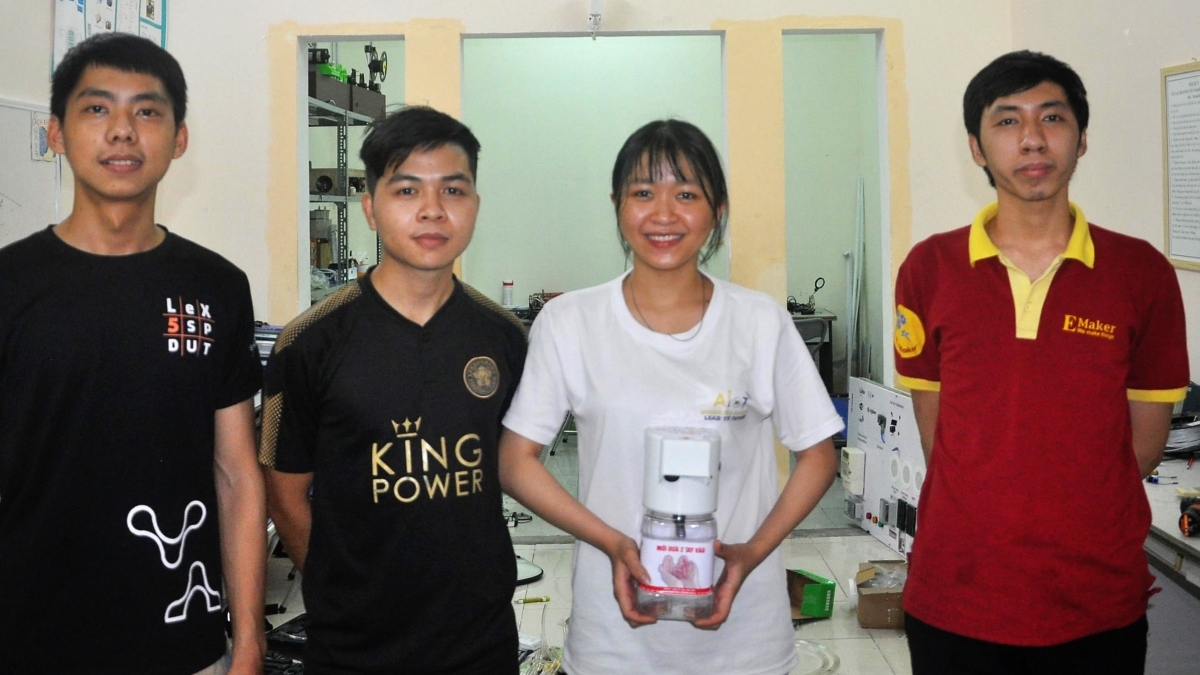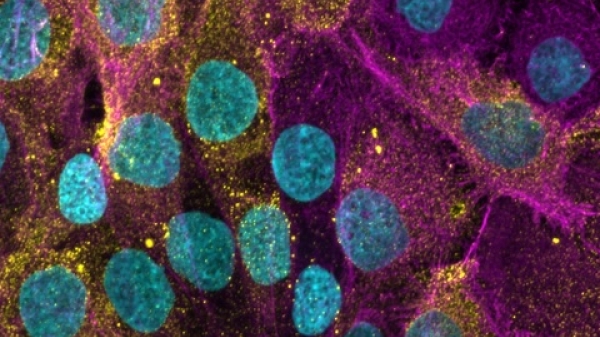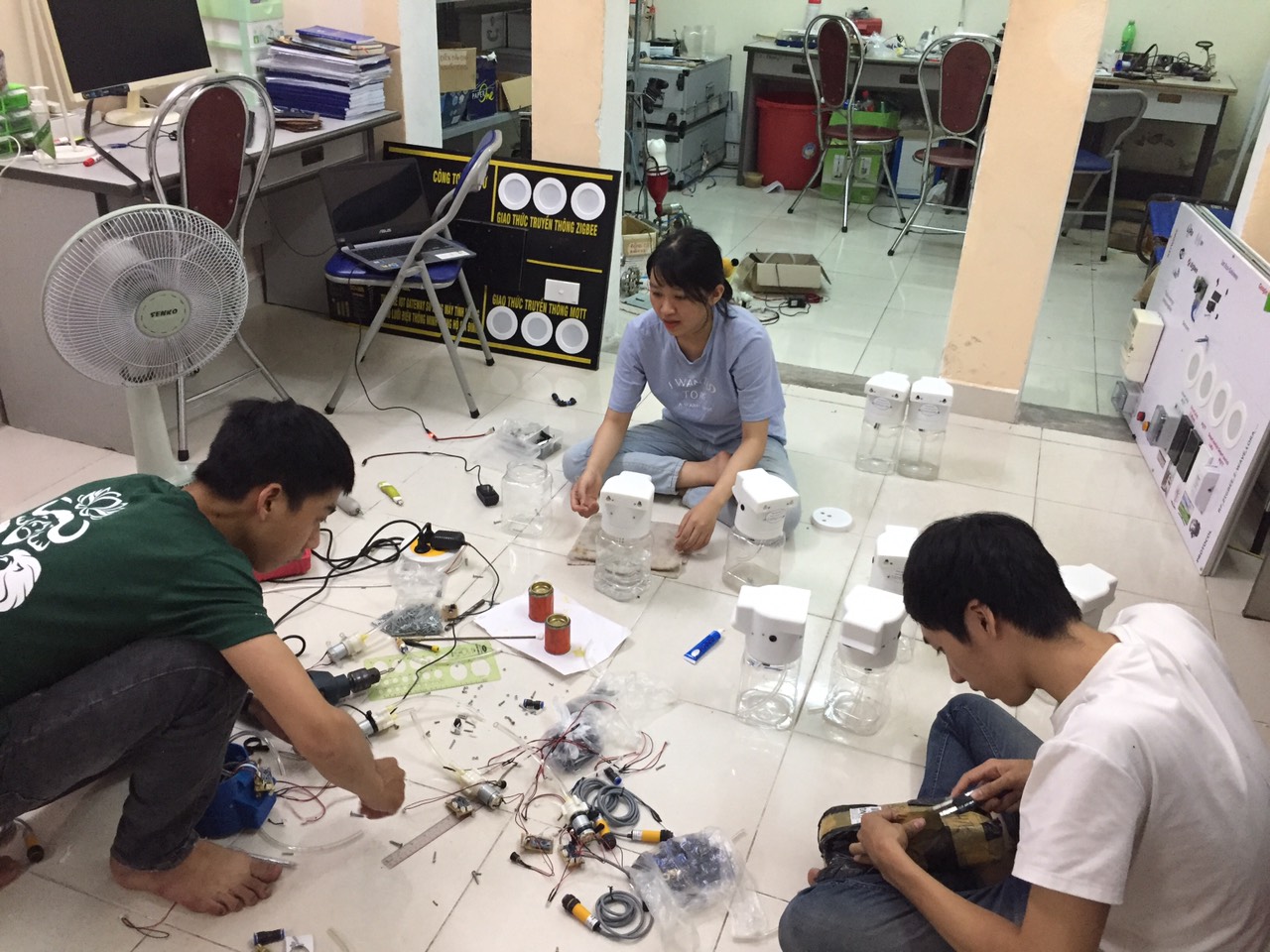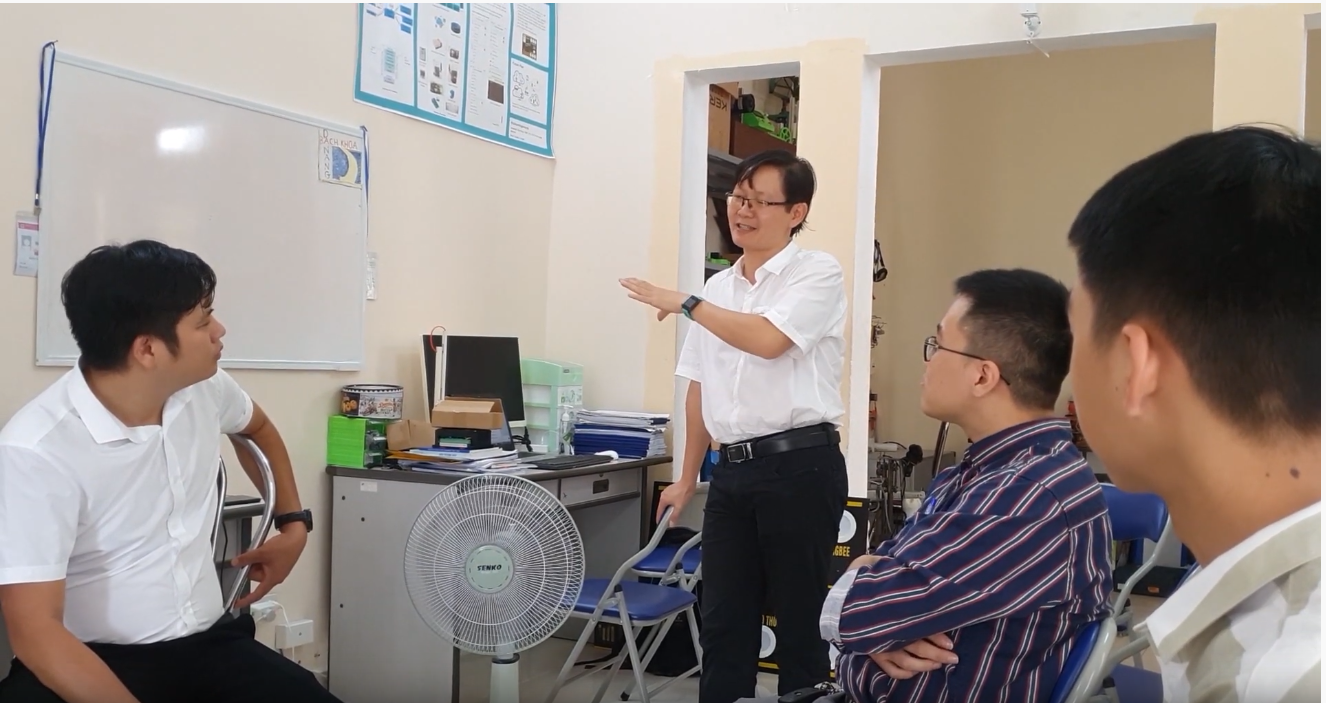ASU’s EPICS in Vietnam inspires innovation to fight COVID-19

ASU EPICS students (from left) Phan Ben, Nguyen Dac Quy, Phan Thi Mai and Nguyen Van Thuan. Photo by USAID BUILD-IT.
As the coronavirus spread through Da Nang, Vietnam, Phan Thi Mai and three of her Engineering Projects in Community Service (EPICS) classmates from the Da Nang University of Technology gathered at their university’s Arizona State University-supported Maker Innovation Space to leverage their creativity, diversity and engineering knowhow to protect their community from the deadly disease.
The team started their EPICS-inspired design process by asking doctors to share their challenges running a busy hospital. The students learned that Vietnam’s health care workers are struggling to safely distribute hand sanitizer to their patients.
While industries around Da Nang began producing hand sanitizer, the team decided to fortify their community’s response by building low-cost, automatic hand sanitizer dispensers for their local hospital.
Over the next three days, Ngo Dinh Thanh, a faculty member at Danang University of Technology and EPICS in Vietnam lead, mentored the team to design and build their prototype dispenser.
On day three, they tested it at Danang City Hospital’s front desk. They collected user feedback and reworked their dispenser to be more responsive.
“We had to do something to fight COVID-19, now nurses and doctors are using our innovation everyday."
— Phan Thi Mai
The EPICS students in Vietnam work on their hand sanitizer dispenser design. Photo by USAID BUILD-IT
Thrilled by the students’ cost-cutting design, Danang City Hospital ordered 15 dispensers to station throughout the hospital. After the students' ingenuity reached national attention, the Da Nang City Department of Health ordered an additional 50 machines to share with hospitals throughout the city.
The machines are now available in the COVID-19 outdoor screening areas throughout the city. Proud of their students' community service, the Danang University of Technology bought an additional 12 machines for the public elementary schools in their area.
“We had to do something to fight COVID-19, now nurses and doctors are using our innovation everyday," Mai said.
Throughout the busy three days, the students were mentored by Thanh, their EPICS lead. Thanh’s ability to turn his students into public health innovators is a testament to his ability to coach young people to combine their creativity and technical skills to bring real value to their communities.
Since 2017, Thanh has collaborated with the USAID BUILD-IT Alliance, implemented by ASU, to lead three cohorts of the EPICS program and hosted a Global EPICS project with ASU students working side-by-side with Vietnamese students in Da Nang.
When Thanh’s community was in need, he quickly led his students through the EPICS design process to build the dispensers.
Ngo Dinh Thanh mentoring the team. Photo by USAID BUILD-IT
“By applying the EPICS process to their designs, we leverage our creativity and expertise to build something meaningful," Thanh said.
To sustain service-learning on campus, Thanh infused the EPICS service-learning process into the mission of his Maker Student Club. Through the Maker Club, students like Phan Thi Mai have the space, supplies and guidance they need to quickly respond to their communities' engineering needs.
As the Maker Club grows from an after-school activity into an asset for its community, Thanh and ASU continue to coach students and peers to focus their designs for community impact and spearhead meaningful innovations in times of crisis.
More Health and medicine

80 years of pioneering speech and hearing services for the community
Over 80 years ago, in 1937, the first course in communication disorders, Speech Correction, was offered at Arizona State…

First 2 degree offerings from ASU Health available in fall 2025
Editor’s note: This story is featured in the 2024 year in review.The first degree offerings from ASU Health will help…

ASU study uses new biomaterials for wound healing
A minor cut often heals within days, vanishing without a trace. Yet, wound healing and tissue repair are complex biological…

